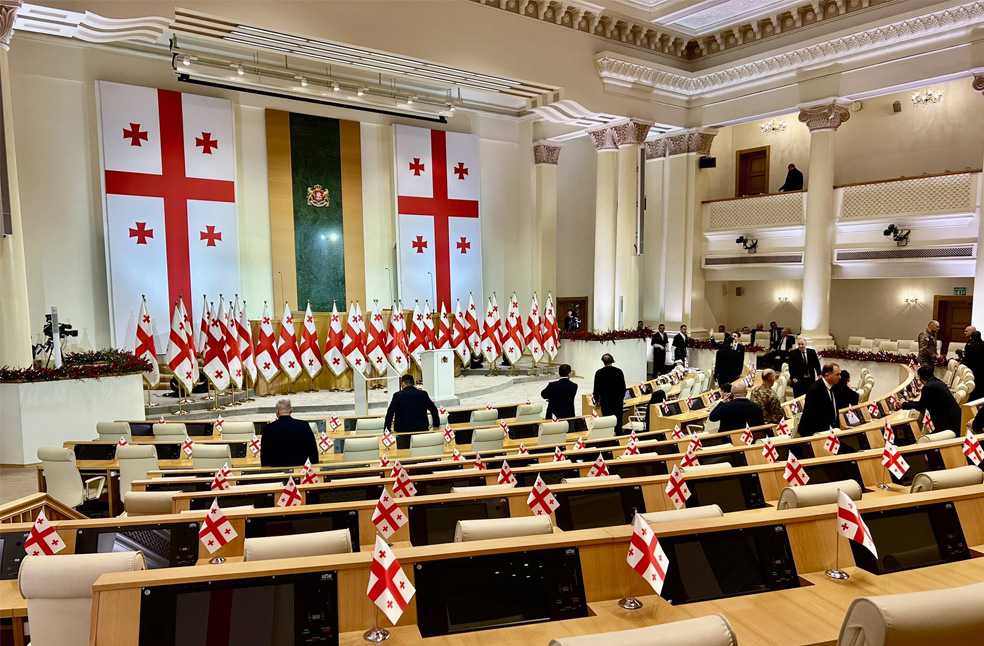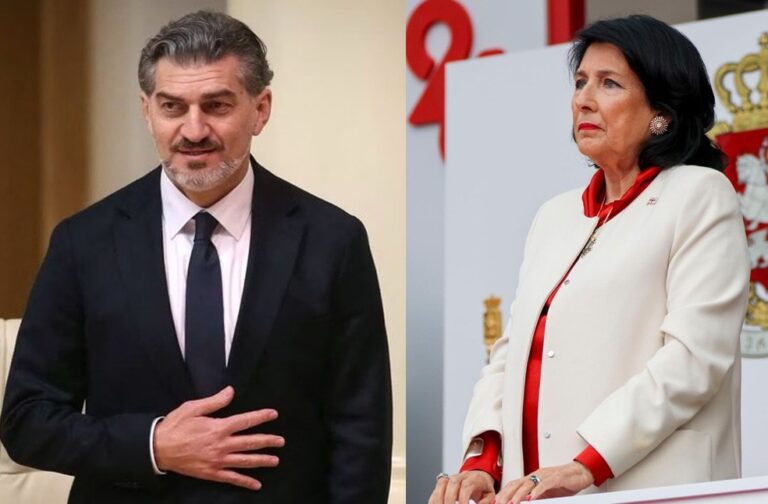Tbilisi, Georgia: Thousands of protesters formed a human chain in Tbilisi, signalling deepening political unrest as Georgia prepares for a controversial presidential inauguration.
Demonstrators, waving Georgian and EU flags, called for the country’s alignment with its pro-European aspirations, amid growing discontent with the ruling Georgian Dream party.
On Sunday December 29th, Mikheil Kavelashvili, a former Manchester City footballer and ally of Georgian Dream, will be sworn in as President.
However, outgoing President Salome Zourabichvili has refused to step down, labeling Kavelashvili’s election illegitimate. She denounced the electoral college process that confirmed his victory, where he was the sole candidate, as a “travesty.”
Georgian Dream, in power for 12 years, has faced widespread accusations of election fraud following its October parliamentary victory, prompting ongoing protests. The four main opposition parties have rejected Kavelashvili and boycotted parliament.

The protests reflect growing frustration with Georgian Dream’s authoritarian policies, including Russian-style laws targeting media, NGOs with foreign funding, and the LGBTQ+ community. The party’s refusal to sanction Russia after its invasion of Ukraine and its criticism of the West as the “global war party” have further alienated pro-European citizens.
Despite the constitution enshrining Georgia’s path to the EU, the government announced in November that it would delay EU accession talks until 2028, sparking days of protests. Riot police used tear gas and water cannons against demonstrators, who retaliated with fireworks and stones.
Adding to the tensions, the US recently imposed sanctions on Bidzina Ivanishvili, Georgian Dream’s billionaire founder and former prime minister.
Zourabichvili, initially backed by Georgian Dream in 2018, has since become a vocal critic of the party, describing its actions as a “Russian special operation” and supporting nightly pro-EU demonstrations outside parliament. She has vowed not to step down, despite government warnings that her refusal would constitute a criminal offense.
Georgia’s political crisis underscores the nation’s ongoing struggle between democratic aspirations and rising authoritarianism, as protesters rally to preserve their country’s European trajectory amid growing fears of Russian influence.



